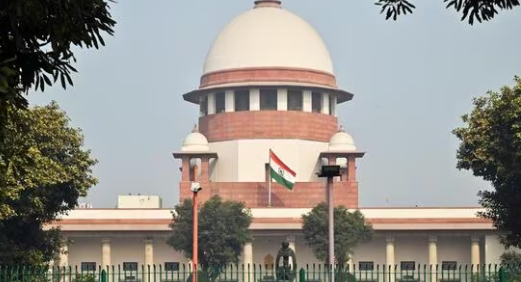In a significant move towards upholding gender equality within the defence forces, the Supreme Court of India has issued a stern warning to the government concerning the delayed implementation of women’s postings in the Indian Coast Guard. The apex court’s statement, “If you don’t, we will,” reflects a resolute stance on ensuring the equal participation of women in all spheres of public service.
The issue of women’s postings in the Coast Guard has been a contentious one, with prolonged delays in the implementation of policies aimed at inclusivity and gender parity. Despite repeated directives from the judiciary and advocacy groups emphasizing the importance of integrating women into the defence forces, progress has been sluggish.
The Supreme Court’s warning underscores the urgency of addressing gender disparities within the Indian Coast Guard and, by extension, the broader defence establishment. It signals a departure from traditional norms and a firm commitment to advancing gender equality in institutions critical to national security.
The judiciary’s intervention highlights the constitutional imperative of ensuring equal opportunities for all citizens, irrespective of gender. By admonishing the government for its inaction, the Supreme Court reaffirms its role as a guardian of fundamental rights and a check against institutional discrimination.
The issue of women’s representation in the armed forces has gained prominence in recent years, with calls for greater inclusivity resonating across society. Recognizing the invaluable contributions of women in various domains, including defence and security, there is a growing consensus on the need for substantive reforms to dismantle systemic barriers.
The Supreme Court’s directive serves as a clarion call for proactive measures to promote gender diversity and inclusiveness within the Indian Coast Guard and other defence forces. It underscores the imperative of aligning policies with constitutional values and international standards of human rights.
As the government faces mounting pressure to uphold its commitment to gender equality, stakeholders emphasize the importance of swift and decisive action in implementing women’s postings in the Coast Guard. Failure to do so not only undermines the principles of equality and justice but also hampers the effectiveness and credibility of our defence institutions.
In response to the Supreme Court’s warning, it is expected that the government will expedite efforts to address the longstanding issue of women’s representation in the Indian Coast Guard. The judiciary’s proactive stance sets a precedent for accountability and underscores the imperative of inclusive governance in a democratic society.
Ultimately, the realization of gender equality within the defence forces is not merely a legal obligation but a moral imperative. The Supreme Court’s admonition serves as a timely reminder of the collective responsibility to ensure a more just and equitable society, where every individual, regardless of gender, has the opportunity to serve and excel on equal footing.








 India
India












